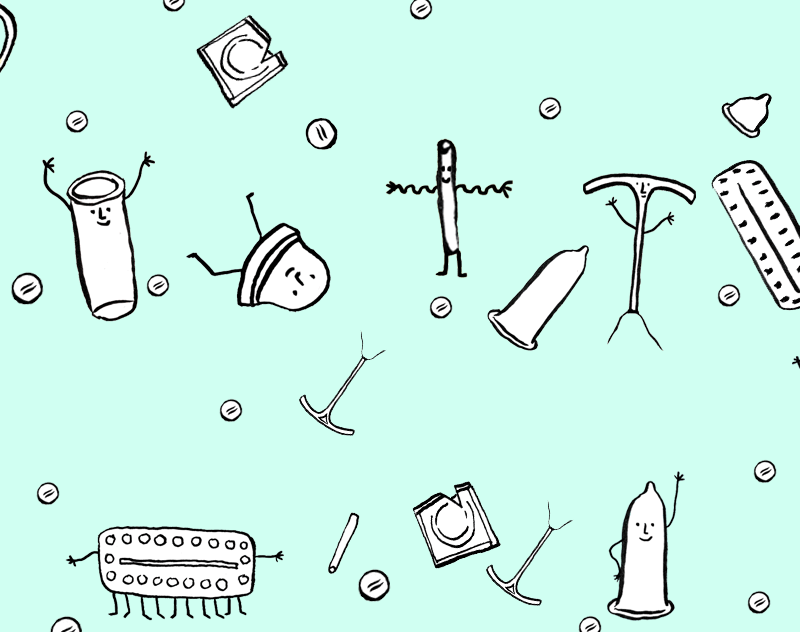Future of Sex + Design poster held at the Royal College of Art. Designed by Ahreum Jung. Image Courtesy of Emily Witt.
Sex should not be a taboo topic. We believe that sex talk should always be encouraged.
Okay, maybe not the new position you tried with your partner at the dinner table with your parents. What we mean is talking about sex in a way that does not mystify or stigmatise it. So when we talk about sex in a very biological process that is as mystical as it gets. Let's face it, we're not all biologists, and we have various emotional and mental desires that are tied into sex. When we trace the evolution of sex through socially accepted norms, we start to understand sex from a more evolved view point.
Before the advent of birth control, sex was exclusively tied to child bearing and understood more in the limelight of procreation. During the 20th century, the sexual revolution began, birth control was created, and the taboos associated with sex became less prevalent as people were talking more about it publicly. People could now enjoy sex for what it was without the socially constrained ties, especially women.

Second-wave feminists march during the Women's Liberation parade in 1970. How Stuff Works.
This is of course not to say that this was the sole factor of the sexual liberation movement, but products like birth control give a better sense of control and agency. Women now had a choice and say in the matter becoming more free to express their sexuality and desires. Thus, empowering women to do more as childbearing becomes less of a social obligation and more of a personal desire.

Now with social norms changing at a rapid pace with the advent of various products and services, sex can now be enjoyed as sex. However, cultural norms do not change over night. Time and time again we see that society and cultures evolve through open discussions from various viewpoints and individual experiences.
An anonymous commenter on Quora beautifully wrote, "And while sex and childbearing are no longer linked, sex and relationships still are - the taboo on sex beside a relationship will remain in place as long as monogamy is the norm, and sexual norms will evolve to support what society deems to be ideal relationships."
Despite the army of social norms around sex, sex is a natural process.
So we wanted to put together a talk about those issues with a researcher, a designer, and an expert to see how these futures are shaped, and have forward thinking discussions. We wanted to know more from the people that create these experiences whether they be physical, digital or rewiring the existing to understand different sexual experiences. - Contraceptions galore. Elle France

Panel discussion with Beccy Poole (left), Benedict Copping, and Kate Moyle.
Discussion Topic:
What is the future of sex? How does design play an important role in understanding the evolution of love, intimacy, relationships and sex? Our society is fascinated with sex, but we often fail to speak about it in a positive way that pushes the discussion forward.
The talk ranged from discussions about remote intimacies, future of dating, sex toys and robots, data privacy, sexual health, human augmentation in sensory experiences, and better communication for creating more inclusive sexual futures as sex and sex-tech play an integral part in understanding human interaction.

Beccy Poole, product research at Elvie, talking about the user research process
Much of the focus of the talk was on sex tech.
What is sex tech? And how does design have a role in that? It can range from sex tech hardware like sex toys to understanding your own personal sexual health like your vagina to digital dating apps that focus on intimacy or hook ups to digital content for viewing pleasure. In the words of Dr. Kate Devlin, "Sex is any type of enacted sexual behaviour. Sexual activity is any type of activity that makes us feel good: oxytocin, serotonin, and endorphins. Sex is about pleasure. It doesn't mean involving penetration. It doesn't necessarily mean reaching orgasm. Its not heteronormative. It's not penis meet vagina." Sex is... many things that could not possibly be encapsulated within one individual experience. Each person has various and different sexual experiences making our intimacy and arousal levels unique and part of who we are.
We need to break the silence, and talk about these experiences more openly as this has clear implications for the next generation as they seek for information and sexual education online. The more we talk about these issues with each other the more transparency we have.
The things we consider taboo are no longer considered taboo when we realise they are a normal, human experience.







